If you’re black, Hispanic, or “Asian/other,” you might want to make sure your voice is heard loud and clear the next time you have to make a trip to the ER. Research published in the Journal of the American Medical Association shows that over the past 13 years, white patients were prescribed powerful opioid painkillers 31% of the time, versus 23% for blacks, 24% for Hisanics, and 28% for Asians and “others.”
studies

Federal Agency Kills Lifesaving Hospital Checklist Program
The Office for Human Research Protections recently shut down a Johns Hopkins University program that had intensive care units across Michigan following “a simple five-step checklist designed to prevent certain hospital infections.”
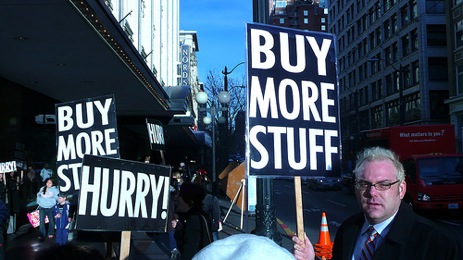
The Best Deals Are Not Found On Black Friday
Stores offer the steepest discounts the day before Christmas, not on Black Friday. A Boston Globe study found that the orgy of mindless early-morning consumerism is good for cutesy door prizes and savings on one or two items, but provides no discount for the vast majority of surveyed goods.
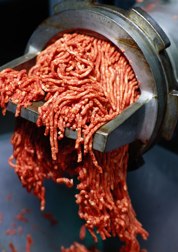
Meat Industry Discovers Consumers' Trust Has Eroded
The meat and poultry industries have learned that if you poison your customers enough times, they’ll eventually start losing trust in you—although, oddly, they won’t change their purchasing habits. That’s the takeaway from a study carried out by Meatingplace.com (snicker) and “its sister publication POULTRY” (ha ha WHERE’S CHRIS HANSON). However, no description of the study is provided other than that Zoomerang.com was used, so we’re not sure if the results are at all meaningful. We’re just glad the meat industry is starting to notice something’s wrong.
../../../..//2007/12/17/japan-says-their-study/
Japan says their study of Tamiflu has proven inconclusive. They’re testing whether or not the flu medication is responsible for abnormal behavior in a percentage of patients. [Reuters]

Retailers Exploit Natural Human Stupidity To Get You To Buy More
The Chicago Tribune recaps the findings of some recent consumer behavior studies—for instance, we’re irrational buyers, prone to shoddy math and emotional decision making. The studies might be paid for by advertisers so they can better manipulate us, but as the Tribune notes, they’re useful for us too because they “can help shoppers make better spending decisions if they understand themselves better.”
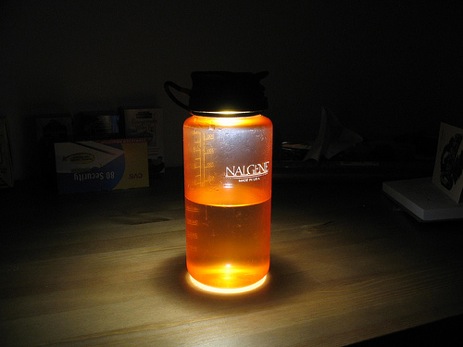
Cancer Fears Prompt Retailer To Pull Nalgene Bottles
Canada’s premier sporting goods store has pulled Nalgene bottles from their shelves over concerns that bottles are made with a cancer-causing chemical. The Vancouver-based Mountain Equipment Co-op is waiting for the outcome of a study from Health Canada on the health effects of bisphenol-a (B.P.A.) before returning the ubiquitous bottles to shelves.

Ohio Study Provides Snapshot Of State Of High School Finance Education
Now that Ohio has made personal finance basics a mandatory requirement to graduate from high school, people are starting to look at the problem of who teaches it and what it consists of (just look at the comment threads in the two related posts below to see the wide spectrum of opinions and personal experience anecdotes). A new Ohio State University study has found that the current level of teaching is all over the place—and the people teaching it have widely varying levels of knowledge about the subject matter.

Honey Better Than Dextromethorphan At Treating Coughs
Score another win for folk treatments: a new study says that honey is more effective than over-the-counter dextromethorphan syrups at treating a child’s cough: “The results were so strong that we were able to say clearly that honey was better than no treatment and dextromethorphan was not.”
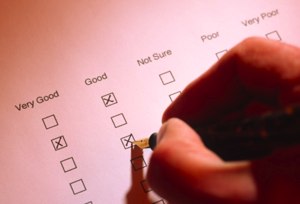
FTC Says Identity Theft Has Dropped, Sort Of, Maybe Not?
The FTC’s figure for identity theft in 2005 was 8.3 million Americans over the age of 18, a drop of about 16% from the 9.9 million it measured in 2003. (2005 is the most recent year for which they have data.) However, not only are consumer groups saying that these numbers are faulty, even the FTC admits in a footnote that “its conclusion is not ‘statistically significant’ because the sample size was too small.”

Survey Says 73% Of Shoppers Don't Care For Their Grocery Stores
Earlier this month, IBM released some interesting findings about grocery shoppers from its new study “Why Advocacy Matters to Grocers,” including:
- 73% of shoppers “feel either antagonistic towards or have no loyalty to their local supermarket”
../../../..//2007/11/19/dont-buy-a-house/
Don’t buy a house near an airport: a Swedish study has found a correlation between living near noisy airports and “an elevated risk of high blood pressure due to noise pollution.” [Reuters]

Walmart "Saves The Average Family $2,500 A Year," But You Don't Actually Have To Shop There
Walmart’s new ad campaign says that the store saves the average American family $2,500 a year. What is doesn’t say is that you don’t actually have to shop at Walmart to take advantage of the savings.

Do Coffee Shops Discriminate Against Women?
We’ll make this brief so we can jump right into the heated comments: an economist and her research assistants studied eight different Boston coffee shops and found that, on average, women had to wait about 20 seconds longer to be served. She controlled for drink types and the discrepancy remained. What’s more, “The delays facing women were larger when the coffee shop staff was all-male and almost vanished when the servers were all-female.”
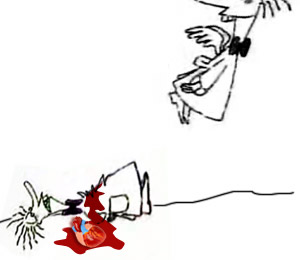
Red Bull Gives Your Blood Pressure Wings
People who have high blood pressure might want to avoid energy drinks, because a new study suggests that they might interfere directly with blood pressure or hamper the effectiveness of medications. The drinks, which have high levels of caffeine and taurine (“an amino acid found in protein-rich foods like meat and fish that can affect heart function and blood pressure”), raise blood pressure and heart rates in healthy individuals, but not to dangerous levels. However, for people who have cardiovascular disease or are taking heart rate or blood pressure medication, the increase could be “significant.”

Retailing Consortium Launches PRISM To Collect Data On Shoppers' Behavior
A consortium of retailers and consumer suppliers are working with Nielsen Co., famous for its nonsensical television ratings system, to launch a large-scale study of consumer behavior in stores. The program is called PRISM, which stands for “Pioneering Research for an In-Store Metric,” and it uses infrared sensors and manual counting, as well as genetic clones of our loved ones, to monitor not just what we buy but how we go about buying it. “About 70% of final purchase decision are made at the shelf,” says a Procter & Gamble rep. “The store has always been important – we just didn’t know enough about it.”

Study Shows Shoppers Will Pay More Than Necessary For Fair Trade Goods
A new Harvard study shows that shoppers—at least the crazy rich ones who frequent ABC Carpet and Home in New York City (if you’ve ever been inside ABC, you know the sort of people we’re talking about)—will not only gravitate toward products labeled “fair trade” over identical but unlabeled products, but will buy even more of them when the prices are raised.

36% Of Identity Thieves Are Women
The Economic Crime Institute at Utica College was allowed to look through Secret Service files and they found some interesting real statistics about identity theft that tell a different story from what we usually hear. Based on their data slices:


